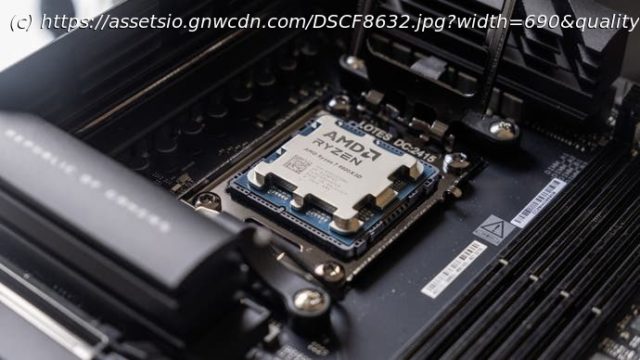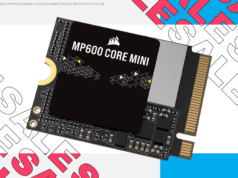The Digital Foundry CPU review of the Intel AMD Ryzen 7 9800X3D, with the test rig, content creation benchmarks and much more.
It’s been a rough old time when it comes to benchmarking CPUs, I can tell you that. The Ryzen 9000 release back in August was let down by relatively meagre performance improvements and an unready software ecosystem, while Intel’s 285K and 245K launch last month showed a significant performance regression versus 14th-gen – despite a genuinely interesting shift in architectures. Thankfully, AMD is here to save the day with the Ryzen 9 9800X3D.
As you might expect, the 9800X3D is the fastest gaming CPU we’ve ever tested, but what you might not expect is just how much faster it can be in some titles versus the 7800X3D, 9700X and 14900K – and how much of a step forward it is outside of games versus its X3D predecessor.
What I particularly like about the 9800X3D is that it does something a bit different to the 7800X3D and 5800X3D before it. Rather than adding on the extra L3 cache above the CCD, AMD has popped it underneath this time around, a move that sees temperatures go down and clock speeds go up. The result is a chip that is a much better all-rounder than its predecessors, while still delivering the kind of game-changing performance that makes X3D chips worth waiting for.
To properly get to grips with the level of performance on offer, we’ve run the 9800X3D through our full gamut of 11 game benchmarks at 1080p, 1440p and 4K, including some of the most demanding single-player (Dragon’s Dogma, Starfield, Cyberpunk) and multiplayer (CS2, F1 24) releases. Our power analysis and DDR5 testing also returns from our recent Intel Core Ultra 200S reviews.
Before we get into all that though, it’s worth taking a closer look at the specs here – and whether the changes we see versus the 7800X3D and 9700X are reflected in our synthetic and content creation benchmarks.
In short, the 9800X3D offers higher base clock speeds and much more L3 cache than the 9700X, but it’s also worth noting that the TDP has climbed to 120W – versus 65W and optionally 105W – for the 9700X.






